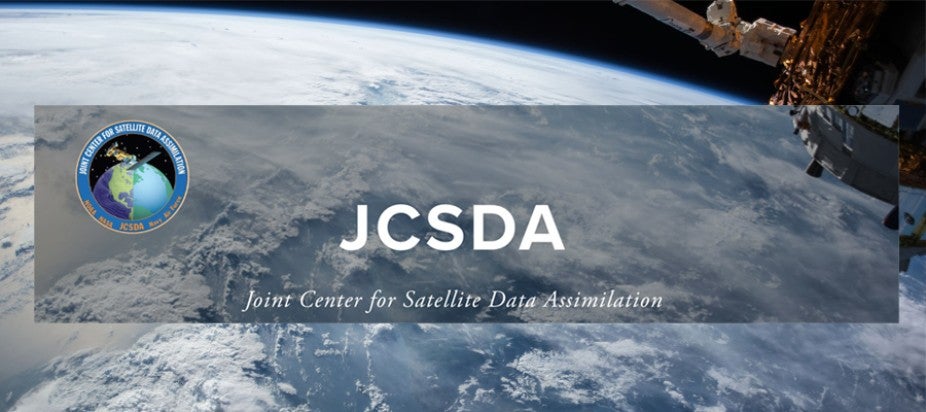16th JCSDA Technical Review Meeting and Science Workshop on Satellite Data Assimilation

6:00 – 6:00 pm MDT
Venue

NOAA David Skaggs Research Center (DSRC)
Multi-purpose Room GC402
325 Broadway
Boulder, CO 80305
Introduction
The annual Technical Review Meeting and Science Workshop provides a forum to review the recent and planned scientific development sponsored by the NASA-NOAA-DOD Joint Center for Satellite Data Assimilation, (JCSDA.) It also enhances coordination of these efforts, both internally and with the broader research community. In addition to the formal presentations, the agenda includes extensive time to conduct informal discussions among scientists from all JCSDA partners and with JCSDA managers. Recommendations and ideas put forth during the meeting are of great value to the JCSDA management, and serve as one of the inputs when developing technical directions of future activities.
The JCSDA Science Steering Committee has defined six primary scientific priority areas:
- Community Radiative Transfer Modeling (CRTM)
- Preparation for assimilation of new data and data from new instruments
- Assimilation of satellite data impacted by clouds and precipitation
- Assimilation of land surface satellite observations
- Assimilation of ocean surface satellite observations
- Atmospheric composition; chemistry, and aerosols
The JCSDA manages its tasks within a number of Projects:
- Community Radiative Transfer Modeling (CRTM)
- Joint Effort for Data assimilation Integration (JEDI)
- Sea-ice, Ocean, Coupled Assimilation (SOCA)
- Impact of Observing System (IOS)
- New and Improved Observations (NIO)
The JCSDA partners contribute core, in-kind, and supported external researchers to these efforts. To fulfill the Center’s mission to accelerate and improve the use of satellite data in operational analysis and predictions, it is essential that all of these efforts be complementary and well-coordinated, and aligned with both the over-arching priorities and the current projects. The JCSDA technical review meeting and science workshop is intended facilitating this coordination.
Who Should Participate
All JCSDA Principal Investigators for Project tasks, and investigators for major sub-tasks, are expected to report on progress and accomplishments for the last year and plans and prospects for the coming year, noting alignment with the Annual Operating Plan as appropriate. All JCSDA-funded external PIs are expected to attend, and to make an oral presentation on their progress report and to indicate what they plan to do over the next year. Finally, other researchers whose efforts may contribute to the advancement of the JCSDA projects and science priorities are invited to present as well. Finally, science and technical mangers from the JCSDA partner agencies are invited to attend. All attendees are encouraged to participate in discussions about the recent and near-term work of the JCSDA as well as longer-term science, technical, and strategic considerations.
Organization of the Meeting
The JCSDA technical review meeting and science Workshop on satellite data assimilation will include invited talks, contributed oral presentations, and contributed posters. To facilitate integration across all work (as well as all participants), parallel sessions will not be conducted. Time will be budgeted to encourage presenters to interact with the audience, and opportunities will be provided for contributions from all current scientific priority areas, as well as emerging ones.
A dedicated poster session is planned. Note that posters will be mounted on their panels the first morning of the meeting and will remain on display until the end of the meeting.(Need to confirm we can do this at DSRC). This arrangement will allow scientists to discuss the content of the posters not only during the poster session but also during coffee breaks and lunch breaks.